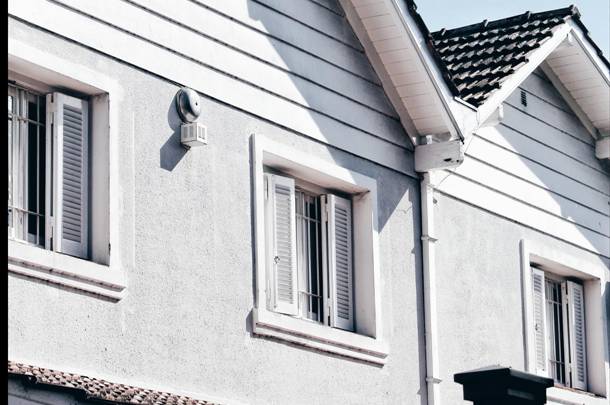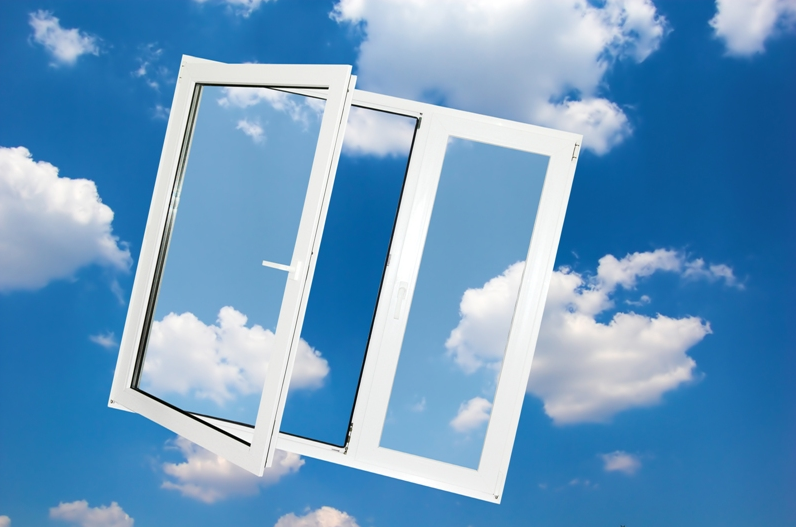
If you are looking for ways to achieve energy cost savings in your home, then installing energy-efficient windows is one way to go. Not only will an investment like this help to lower your energy bills, but it helps to minimize environmental impact as well.
When it comes to window choices, there are several options available on the market. Different windows will have different properties that include style, materials, and features specific to your climate. It is best to understand what types of window properties you might come across so that you can make an informed decision. Here are some things to consider when shopping for the best energy-efficient windows for your home.
Components of Energy-Efficient Windows
There are three components that contribute to the energy efficiency of a window, including the frame, the glass, and the window operation.
The Frame
The frame supports the glass of a window. One will find that window frames come in various materials, like wood, aluminum, or vinyl. Different materials will offer different energy and money-saving properties, and therefore it is good to know what are the advantages and disadvantages of each type of material.
Aluminum, for example, is low in maintenance, durable, and lightweight material; however, it is also a conductor of heat.
Frames made from wood will require more maintenance, but they offer excellent insulation and are available in many styles.
An even better insulator than wood is fiberglass frames, but they tend to be more expensive.
Another costly choice is frames that are made from composite. However, they offer great benefits, including durability, resistance to warping, fading and denting, and they can insulate exceptionally well.
And finally, vinyl frames which are commonly referred to as PVC or UPVC windows are widely available. They are great against moisture retention, but it won't be possible to paint them if you desire a different look. UPVC windows hold many benefits, including energy-efficiency, security, durability and more.
Glass
Any window that contains more than one pane of glass will provide much better insulation for a home. Homeowners can expect to find a wide range of window glass when buying windows.
-
Single-pane glass
This type of glass is common in older homes and is not recommended to use today. That is because single-pane windows do not provide good insulation against heat, cold, and noise.
-
Double-pane glass
Windows that are made with double-pane glass is a prevalent option among homeowners because it is the industry standard in new construction.
Windows with this type of glass will insulate your home with the help of argon or krypton gas that is situated between the sheets of glass. When choosing double-pane glass windows for your home, you can expect a quieter and more comfortable window as well as a reduction in heating and cooling costs.
-
Triple-pane glass
In general, triple-pane glass is less common than double-pane glass; however, if you live in an area that experiences extremely cold winters, then this is a great option. Additional options for such a glass include energy-efficient coatings and after-market tints, which can provide even more insulating properties.
-
Low-emissivity glass
This kind of glass is also known as low-E glass, which has been manufactured with an energy-efficient coating.
The UV and infrared rays from the sun get blocked through the microscopically thin glaze. At the same time, you will not notice any impact on the amount of sunlight that enters your home.
If you are interested in a low-E coating, take note that this type of surface cannot be applied after a window is installed.
Solar control window film
If you are looking for an energy-efficient solution that can be installed on your current window, then solar control window film might be a good option for you.
These types of films can be applied after the window is installed and are very efficient when it comes to filtering UV rays. Some solar control window films will not change the appearance of your windows, while others are more reflective.

Source
Operation
Another thing you will need to consider is how the window operates. The windows' energy efficiency is also related through how much air escapes through the glass and around the frame. Even if you have energy-efficient windows that contain tight seals and gaskets, they will still release air to some extent.
Windows that do not open will leak less air than single or double-hung windows. While these types of windows are not ideal for every room, you might want to consider installing such windows in areas where ventilation is not needed or install them with the idea of bringing more light into your home.
Windows like these include awning, casement, and hopper style windows. Keep in mind that these windows have an airtight seal but are fixed, which means they cannot open for ventilation.
Terminologies to Keep in Mind When “Window” Shopping
When shopping around for a new window, look for products that have an ENERGY STAR label as these products are known to reduce energy costs by 12 percent. ENERGY STAR labels also ensure that the product is truly energy efficient.
The U-Factor will measure the amount of how much a specific window product insulates. These numbers will range from 0,25 to 1,25. The lower the number, the better the product insulates.
The SHGC, also known as Solar Heat Gain Coefficient, rates how well the window is at collecting solar heat and contributing to the home. Therefore, if you live in an area with a colder climate, then a higher SHGC rating is better, while a higher SHGC rating is better in warmer climates. These numbers range from 0 to 1, but it is common to find numbers between 0.25 and 0.80.
The amount of light entering your home will be measured by the visible transmittance numbers, which typically range from 0.20 to 0.80. For example, a window that contains a VT rating below 0.40 might make everything seem gray when you look through the window. The higher the numbers, the more sunlight will come through the window.
For less air leakage, a low AL number is better. Therefore, if you want to increase the energy efficiency in your home, keep the standard AL number with a value of 0.3 cfm/ft² in mind.
The condensation resistance of windows is measured on a scale of 0 to 100 - the higher the number, the higher the resistance to build up condensation, which means less moisture.
Final Tip
Even if you consider everything that is needed to obtain the perfect energy-efficient window for your home, make sure you hire a professional window and door installation company. Not only will a trustworthy installation company help you pick out the best window option for your home, but they will be able to guarantee you high standards and a good warranty.
Written by Mattea Jacobs
About the Author
Mattea Jacobs is a freelance writer who mostly writes about both interior and exterior home design, and environmentally-friendly ways to improve homes. She is also a green activist and a mother of two beautiful sons. You can reach her on Facebook and Instagram.
You may also like
Choose the Perfect Solar System for Your Home: 6 Things to Consider
Which Is the Most Efficient Type of Radiator?
Why You Should Consider a LEED-Certified Home
Making Your Home More Sustainable: Our Top Tips
